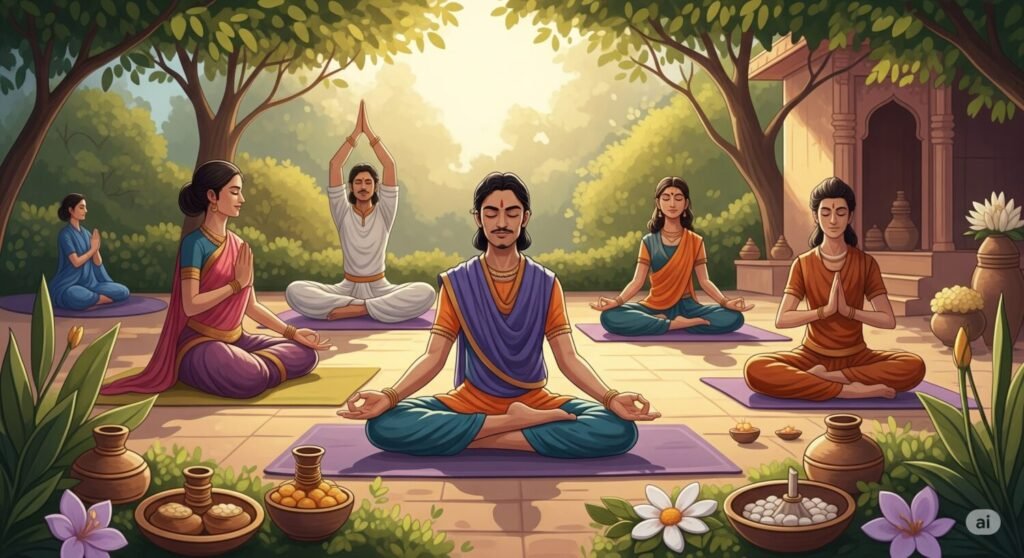Discover daily habits from Indian culture that promote long-term wellness. Explore simple, effective practices for a healthier, more balanced life.
Indian culture, rich in ancient wisdom, offers a treasure trove of daily practices designed to foster holistic well-being. These aren’t merely rituals; furthermore, they are deeply ingrained habits that prioritize physical, mental, and spiritual health. Incorporating even a few of these traditions can significantly enhance your long-term wellness, providing a sense of balance and vitality in today’s fast-paced world.
The Power of Mindful Mornings
Starting your day with intention is a cornerstone of Indian wellness. Many traditions emphasize waking up before sunrise, a practice known as “Brahma Muhurta.” This quiet time is considered ideal for introspection and spiritual practices. Additionally, a common morning ritual involves oil pulling, swishing sesame or coconut oil in the mouth to detoxify and promote oral hygiene. Furthermore, drinking warm water, often with lemon or honey, is believed to kickstart digestion and cleanse the system. These simple acts, performed consistently, set a positive tone for the entire day.
Nourishing the Body with Ayurvedic Principles
Ayurveda, the ancient Indian system of medicine, offers profound insights into nutrition. It emphasizes eating fresh, seasonal, and locally sourced foods that are appropriate for your individual body type. Therefore, mindful eating is crucial; meals are often consumed in a calm environment, allowing for proper digestion and absorption of nutrients. Furthermore, spices like turmeric, ginger, and cumin are not just for flavor; they are packed with medicinal properties that support overall health. This approach to food views it as medicine, thereby promoting sustained wellness rather than just satisfying hunger.
Movement and Breath for Inner Harmony
Yoga and pranayama (breathing exercises) are perhaps the most widely recognized Indian practices for wellness. Yoga, more than just physical postures, is a holistic discipline that integrates movement, breath, and meditation. Regular practice improves flexibility, strength, and balance, both physically and mentally. Moreover, pranayama techniques, such as alternate nostril breathing, calm the nervous system, reduce stress, and enhance lung capacity. These practices offer accessible ways to connect with your body and breath, fostering a deep sense of inner peace.
The Importance of Rest and Reflection
Beyond physical activity and nutrition, Indian culture places significant value on adequate rest and periods of reflection. Napping, or “siesta,” is a common practice in many parts of India, allowing the body to recharge during the day. Furthermore, evening routines often involve winding down with light activities, avoiding stimulating screens, and preparing the mind for restful sleep. Additionally, practices like journaling or simply sitting in quiet contemplation offer opportunities for self-awareness and emotional processing, contributing to mental clarity and resilience. These habits collectively support the body’s natural rhythms, ensuring comprehensive well-being.












